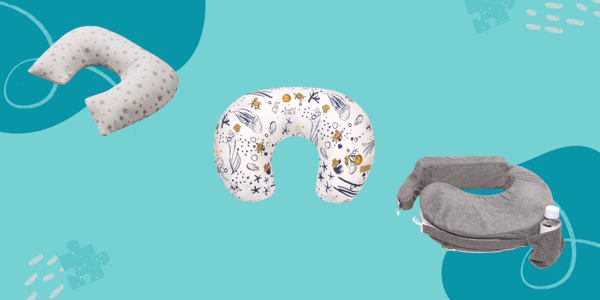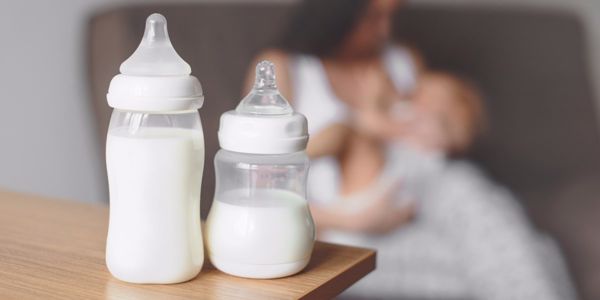During your pregnancy and once you’ve given birth people will encourage you to breastfeed. But very few will offer advice when the time comes to stop breastfeeding.
Here are five things that no one tells you about when you stop breastfeeding.
1 - Be Prepared for an Emotional Rollercoaster
When it comes to the end of your breastfeeding journey, you may feel emotional and teary (thanks to the drop in the hormones feel-good hormones prolactin and oxytocin).
If you’ve created a strong breastfeeding relationship with your little one and you’ve enjoyed breastfeeding and everything else that comes with it, the process of stopping breastfeeding can bring with it major upheaval to both your body and your mind, along with day-to-day life as your routines change.
This, however, does not apply to every woman. For some women, the end of their breastfeeding journey marks the beginning of their new found freedom or detachment from the demands that breastfeeding requires. The end of breastfeeding can sometimes come as a relief for mothers who are looking forward to getting back into their careers. As well as those who feel ready to begin navigating life without breastfeeding.
Regardless of what emotions you’re feeling, whether that be relief or grief, it is okay. Your feelings are valid and true for you!
Remember - When you feel the time has come to stop breastfeeding, it’s a good idea to wean your little one off the breast gradually, both for you and your little one. Gradual weaning gives your body and mind time to adjust to your new “normal”.
2 - A Slow End Is Better Than an Abrupt One
To reduce the chances of painful engorgement, slow and gradual is better. Instead of going cold turkey, start by dropping one nursing or pumping session every other day.
If you’ve made the decision to stop nursing instantly, express little bits of your milk as needed to relieve your breasts. But make sure to be extra careful as expressing too much may result in you lactating again.
Alongside expressing off milk as needed, massage your breasts as and when you need to help reduce the risk of mastitis or any other infections that can be caused as a result of clogged milk ducts.
The general rule is that the longer you’ve been breastfeeding, the longer it’ll take for your milk to dry up - this could take a few days to weeks.
Tip - if you’re struggling with engorgement place two chilled cabbage leaves inside your bra, on your breasts for 20 minutes each day (or until the leaves are warm) to provide relief. Do not reuse the leaves, throw them away after each use.
3 - Separation Anxiety
Your breastfeeding journey can come to an end either because your little one is ready to stop, or because you are ready to stop.
If you have made the decision to stop breastfeeding, there’s a chance that your baby may not be ready to begin the separation process. You may notice your little one being extra clingy during this time as they seek closeness.
A way to help your little one with this change is by introducing a bottle before you stop breastfeeding. This is a really good way to ensure that your little one is not 100% dependent on you all of the time.
Your little one may still be clingy even despite adding in a bottle - this is okay and this is totally normal. Like your little one, you’ll probably find that you too may need those extra cuddles while you both transition through this stage.
4 - Breast Shrinkage
When you stop breastfeeding your breasts will slowly shrink back to their pre-pregnancy size. For bigger-chested women, this may come as a relief as it can be uncomfortable when your breasts are heavy and prone to leakage.
For those with smaller breasts, full breasts with cleavage may well be left in the past. A lot of women argue that their breasts end up being smaller or less “perky” than they were pre-baby/pregnancy. This is thanks to the loss of fat around the glandular tissue (which usually disappears for a while but further down the road, you may get some fattiness back!)
Ultimately, breast shrinkage can be both good or bad depending on which category you fall into!
5 - The End of Automatic Calorie Burning
Breastfeeding is known to help a woman lose pregnancy weight. This is because breastfeeding burns on average, around 500 calories per day. In order to produce the milk, you have to eat more protein to encourage the production of milk.
Unless you’re blessed with an overactive metabolism, in order to keep up with the calorie burning it’s a good idea to be mindful of the meals you’re eating and the amount of exercise you’re doing.
Stopping breastfeeding will bring with it a whole load of emotions that you may or may not be prepared for!
So remember to be kind to yourself, this is a big deal and all of your thoughts and your feelings are totally valid.
You’ve got this!







